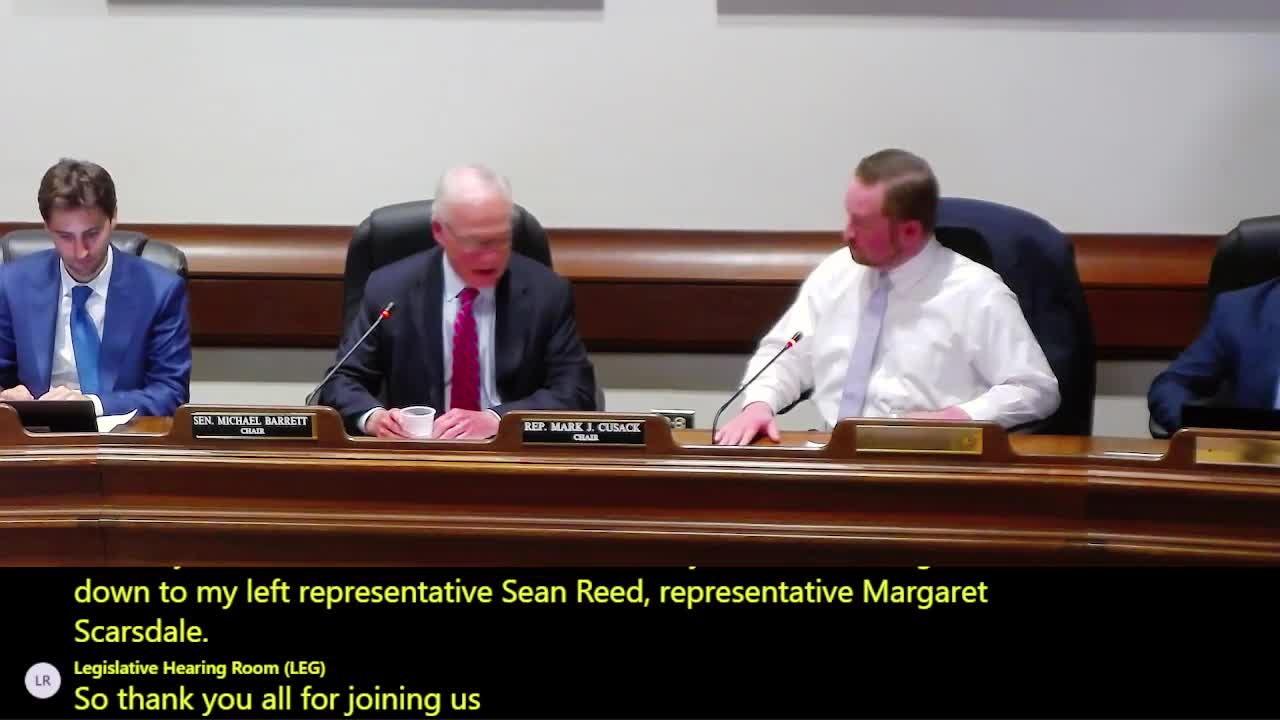Lawmakers hear broad push to lift solar caps, streamline permitting and boost state tax credit
Get AI-powered insights, summaries, and transcripts
Subscribe
Summary
At a hearing of the legislature's Joint Committee on Telecommunications, Utilities and Energy, lawmakers and stakeholders pressed proposals to speed residential and municipal solar through instant permitting, lift municipal and regional net‑metering caps, expand state tax credits (including making them refundable), and enable virtual power plants.
At a hearing of the Joint Committee on Telecommunications, Utilities and Energy, state lawmakers and a wide range of stakeholders urged the legislature to advance bills that would speed rooftop and municipal solar, ease interconnection, and expand state incentives amid rising electricity costs and weaker federal tax support.
The committee heard detailed testimony about two related bill packages widely discussed during the hearing: Senate Bill 2269 (an act facilitating distributed energy resources) and the companion House measures, including H.3520. Provisions discussed included statewide adoption of instant permitting for residential solar, lifting municipal and regional net‑metering caps, increasing and making refundable the state residential solar tax credit, and creating programs to aggregate distributed resources into virtual power plants.
Why it matters: Advocates said rapid adoption of rooftop solar and batteries can lower household bills, reduce wholesale prices during peak demand, and avoid expensive grid upgrades — especially important after recent federal tax changes that will reduce national subsidies for residential solar. The proposals aim to replace administrative delays and inconsistent local rules with statewide standards and technical programs that can be hosted by the Department of Energy Resources (DOER).
Hannah Birnbaum, chief of advocacy at Permit Power, described the permitting problem in plain terms: "Rooftop solar is one of the few ways for families to find direct relief from soaring utility bills," and smart permitting could reduce the cost of a typical Massachusetts installation by about $5,500 while enabling nearly 120,000 additional installs over 15 years if adopted statewide. Birnbaum urged the committee to require or enable a statewide automated permitting platform, pointing to SolarAPP+ and similar tools now used elsewhere.
Municipal caps and single‑parcel rules drew sustained attention. Mark Sandeen, a Lexington select board member, said Lexington has installed 6.2 megawatts of solar and is planning additional net‑zero municipal projects, but a 10‑megawatt municipal cap and a single‑parcel rule limit the town's ability to site more behind‑the‑meter solar. "It's time to lift the 10 megawatt and behind the meter caps on municipalities hosting capacity," Sandeen said, and he urged that exemptions granted for low‑ and moderate‑income housing be extended to MBTA‑community multifamily housing.
City officials said caps can stop projects that are already shovel‑ready. Julie Wormser, chief climate officer for the City of Cambridge, said the city has interconnected more than 7.3 megawatts under net metering and that roughly half of that capacity is city‑owned. "We're quickly approaching the 10 megawatt per municipality cap," Wormser said, adding that Eversource's regional allocation for municipal projects has about 133 megawatts remaining and could be consumed within three years at current installation rates.
On interconnection and flexible operation, witnesses urged reforms to allow more small systems to connect without lengthy system‑impact studies. Valessa Sudarklein, Northeast regional director for the Solar Energy Industries Association (SEIA), said utilities should avoid adding new procedural hurdles and highlighted flexible interconnection and common system modification fees as options to reduce delays and costs.
Virtual power plants and peak savings: Kyle Murray, Massachusetts program director for Acadia Center, summarized analysis showing the price‑suppression value of behind‑the‑meter solar on hot, high‑demand days. Murray told the committee that behind‑the‑meter solar likely reduced wholesale costs by millions on a recent summer peak; his organization estimated a single summer day saved consumers roughly $8.2 million, with some metrics showing a higher figure approaching $19.4 million when different price effects are included. He and other witnesses urged the legislature to support virtual power plant programs that aggregate solar, batteries and demand response to reduce system peaks and wholesale price spikes.
Equity, financing, and tax credit design: Several witnesses urged strengthening state incentives to offset the impact of reduced federal credits. Ben Underwood of Resonance Energy and others recommended making the state residential tax credit refundable or direct‑pay so affordable housing providers and low‑income households — which lack large tax liabilities — can benefit. Witnesses also proposed restoring or redesigning the state's solar loan program and expanding tax credits beyond the current $1,000 cap, which multiple speakers said dates back to an earlier era of solar hot‑water incentives.
Consumer protection and program design: Consumer advocates pressed for stronger oversight of residential sales and financing models, including power purchase agreements, which critics say have generated complaints. Kerry Catan of Green Energy Consumers Alliance noted that the attorney general's office received more than 1,500 complaints against solar companies in a recent multi‑year period and urged clear consumer protections either by extending the SMART program's protections or giving DOER explicit authority to regulate residential transactions outside SMART.
Implementation challenges: Witnesses acknowledged constraints for small towns and rural conservation concerns. Multiple presenters recommended that DOER host any statewide permitting platform so smaller municipal building departments would not face unfunded deadlines. Several speakers also urged preserving protections for forests and farmland by prioritizing built or previously developed sites for large ground‑mounted projects.
There were no formal committee votes during the hearing. Lawmakers signaled interest in folding the permitting language and municipal exemptions into omnibus solar legislation, and staff said they will continue to work with proponents and utilities to refine technical language.
